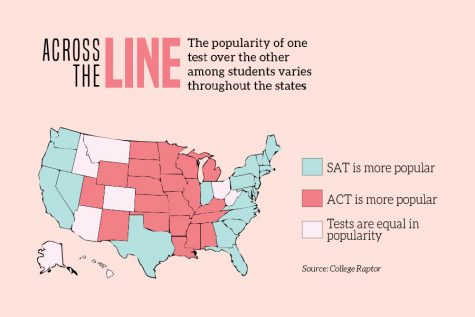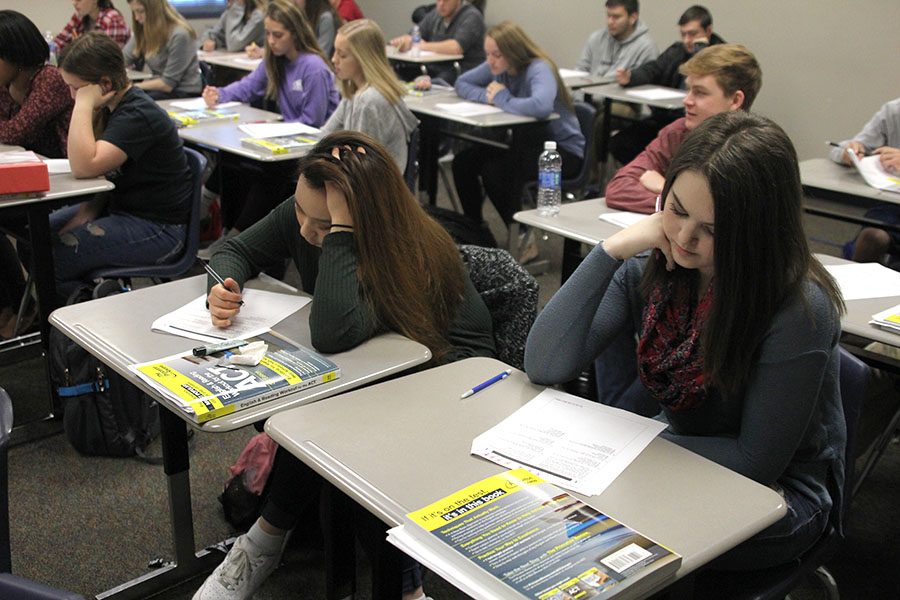Students and teachers evaluate the ACT and SAT tests
By comparing and contrasting the two tests, students are able to decide which test best suits them
By Joe McClain
In their ACT Prep class, seniors Hannah Brady and Seohee Shin participate in a class discussion as they review their answers after taking a practice test on Monday Nov. 28.
December 11, 2016
High school students face many decisions regarding their academic future, one of them being the choice between taking either the SAT or the ACT test. Students use these scores when applying for college, with higher scores giving them a higher chance of acceptance.
According to College Board, every four year college in the U.S. accepts both test scores. However, students located in different regions of the U.S. tend to focus more of their attention on one test over the other. Students living in coastal areas tend to prefer the SAT, while in the midwest region the ACT is typically more popular.
Senior Vicki Robinson will be attending Kansas State University in the fall of 2017, and didn’t feel the need to take both the SAT and ACT when applying for college.
“I didn’t take the SAT simply because Kansas colleges don’t require that score to get in,” Robinson said.
The SAT offers two math sections, a critical reading section and a writing section, while the ACT consists of math, science, reading and English sections. When preparing for the ACT and SAT, junior Cori Carver was able to study material that would benefit her on both.
“Most of the topics overlap for the tests so it’s not like I have to study two completely different curriculums,” Carver said. “Studying for one will most likely help you do better on the other.”
Due to the majority of students at Mill Valley choosing the ACT over the SAT, only an ACT prep class is offered at the school.
ACT prep teacher Jeff Wieland teaches students to not only guess the correct answer on the test, but to understand why they got it because the ACT centers around students’ concrete knowledge. In contrast, the SAT focuses on testing students’ critical thinking skills, according to Wieland.
“Between the two of them, I felt the SAT answers weren’t as clear-cut right and wrong,” Wieland said. “I look at the ACT … and there is very clearly a right answer.”
College Board also states ACT questions are straightforward and easier to understand, while the SAT contains more context-based questions with multiple steps, making them harder to comprehend.
The differences in the tests, for Carver, is what drives her to take both the ACT and the SAT, and she encourages others to do the same.
“I would take both because it’ll help you, it’s not going to hurt you,” Carver said. “You may find that after studying for the ACT you are better suited to take the SAT so why would you not want to get the best score possible?”











